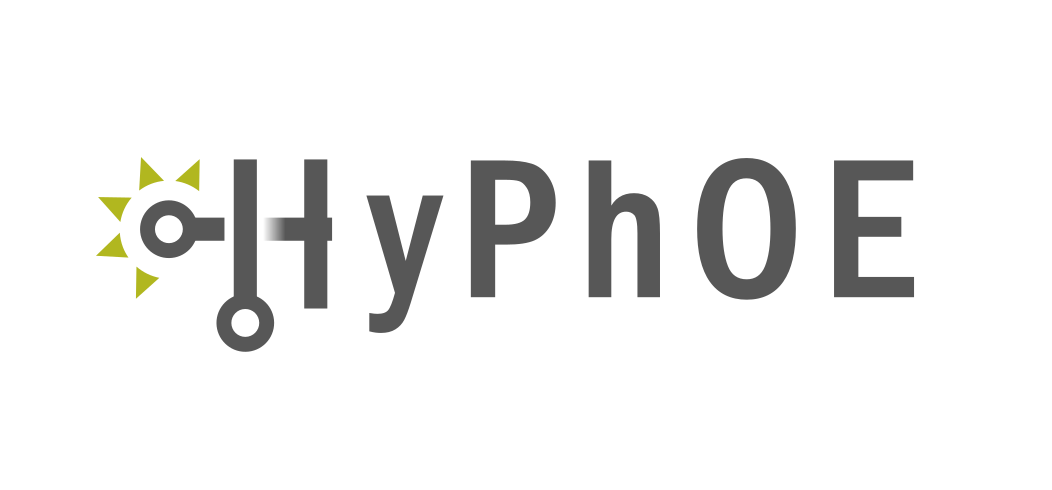Kick off meeting
The Project HyPhOE – Hybrid Electronics based on Photosynthetic Organisms – financed in the call H2020-FETOPEN-2016-2017 (Grant Agreement No. 800926), coordinated by the Dr. Eleni Stavrinidou (Assistant Professor at the Laboratory of Organic Electronics (LOE), Linköping University, Sweden), started with an exciting kick-off meeting at Linköping University, 2 October 2018.
As the name of the H2020 call implies, FET-Open- Novel Ideas for radically new technologies, HyPhOE wants to explore a revolutionary approach to electronic materials and devices based on the use of plants, algae and bacteria. This is a radically pioneering investigation, generated by the original intuition of using plants and photosynthetic organisms in conjunction with tailored organic materials and electronic devices to develop completely new approaches to many important technologies. The bio-hybrid systems conceived in HyPhOE will target three key applications:
- Energy systems based on electronically-functionalized plants and photosynthetic microorganisms;
- Plants growth control and optimization using electronics;
- Environmental monitoring using functionalized plants.
The concept inspiring to the envisaged research in HyPhOE is the exploitation of the billions-of-years perfected physiological structures developed by plants, algae and some photosynthetic bacteria in conjunction with tailored organic materials as a platform for new electronic devices having impact on the key areas of energy, plants production and environment. This fundamental research will eventually result in completely new and groundbreaking approaches to electronics and simultaneously it will advance fundamental understanding of plants and bacterial biological processes.
The research of HyPhOE is highly interdisciplinary, and it is the result of a very unconventional hybridization of concepts including electronics, materials science, chemistry, plant biology and biotechnology. The HyPhOE consortium covers all the required competences involving top level research groups across Europe: 1) the Laboratory of Organic Electronics (LOE) of Linköping University, Sweden- as the coordinator of the Project; the Umeå Plant Science Center (UPSC) of Swedish University of Agricultural Sciences, Sweden; 3) the Laboratory of Chemistry of Organic Polymers (LCPO) of the Institute Polytechnique de Bordeaux, France; 4) the ITODYS – Interface, Treatment, Organization and Dynamics of Surfaces of Université Paris Diderot-Paris 7, France; 5) the Chemistry Department of the University of Bari together with Institute for the Studies of Chemical Physical Processes, Italy. The group consists of a balanced team of well-established scientists and young group leaders in the beginning of their independent scientific career, with two out of five group leaders, including the coordinator, being women.
The kick-off meeting has been an exciting start, with all the groups sharing their expertise and planning the strategies to make the common research of HyPhOE run effectively from the perfect integration of the complementary competencies of the participants. Besides the scientific activities organized in research work packages, the project includes dissemination actions. The dissemination will be not only for experts through scientific publications and participation in specialized conferences, but also for the wide public via an open website. Wide diffusion of the most significant results and of the groundbreaking concepts of the project will be ensured through communication via press releases, social media and broadcasting via national and international science divulgation media (TV, journals, etc.). The action is expected to generate impact on a higher level to the European economy and society, and for this reason the project also includes a market analysis and exploitation plan. Protection of intellectual property is also part of the challenge since HyPhOE most likely will have big impact both on fundamental research and technology.
The kick-off meeting of HyPhOE at the Laboratory of Organic Electronics of Linköping university is the start of a very exciting scientific journey which promises to open new paradigms in technology for energy, environmental monitoring and plant production based on a revolutionary symbiosis between photosynthetic organisms and electronics. The entire HyPhOE consortium is very excited to embark on this scientific journey which will last between September 2018 and August 2021.

 This project has received funding from the European Union’s Horizon 2020 research and innovation programme under grant agreement No 800926. In cooperation with
This project has received funding from the European Union’s Horizon 2020 research and innovation programme under grant agreement No 800926. In cooperation with